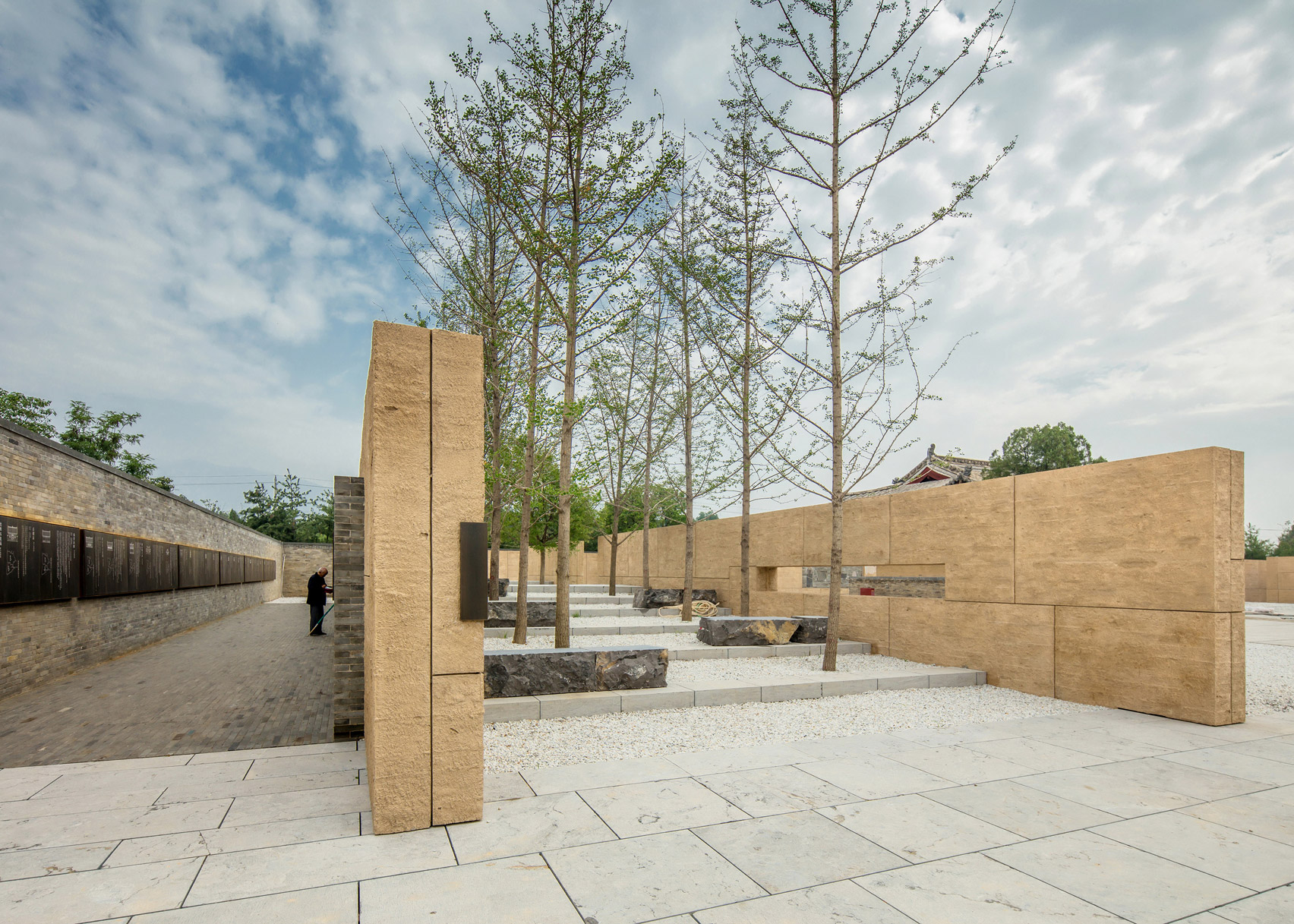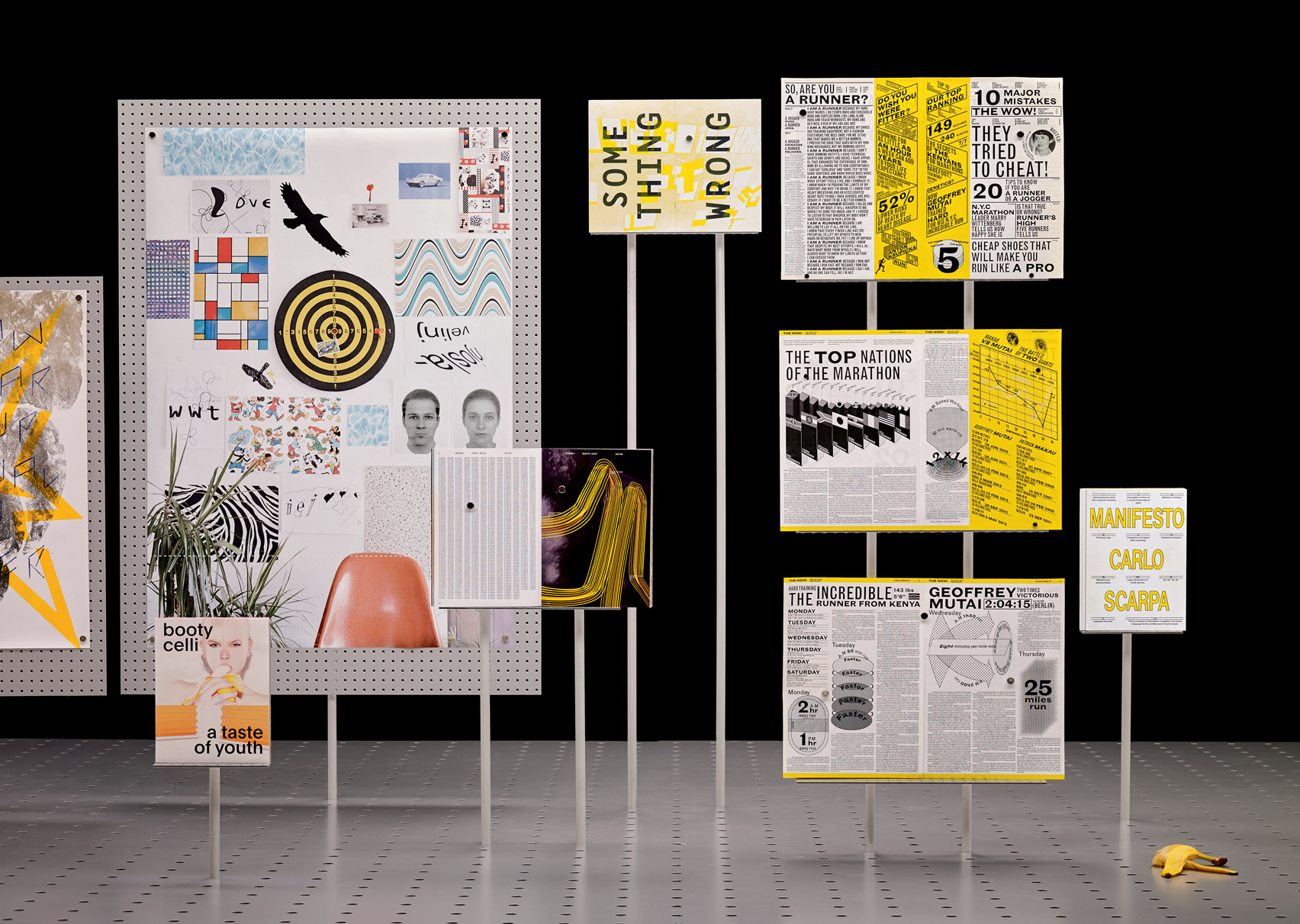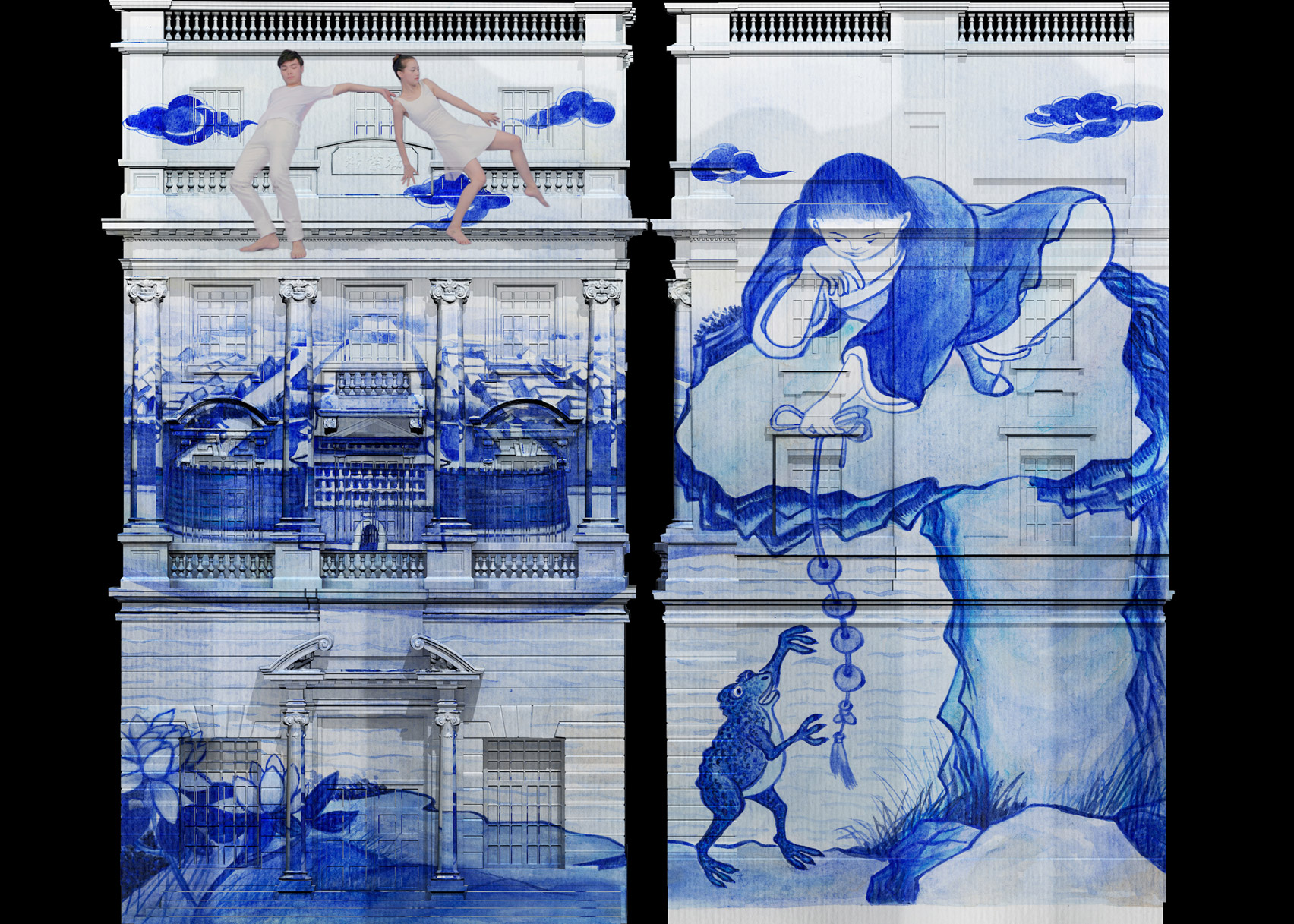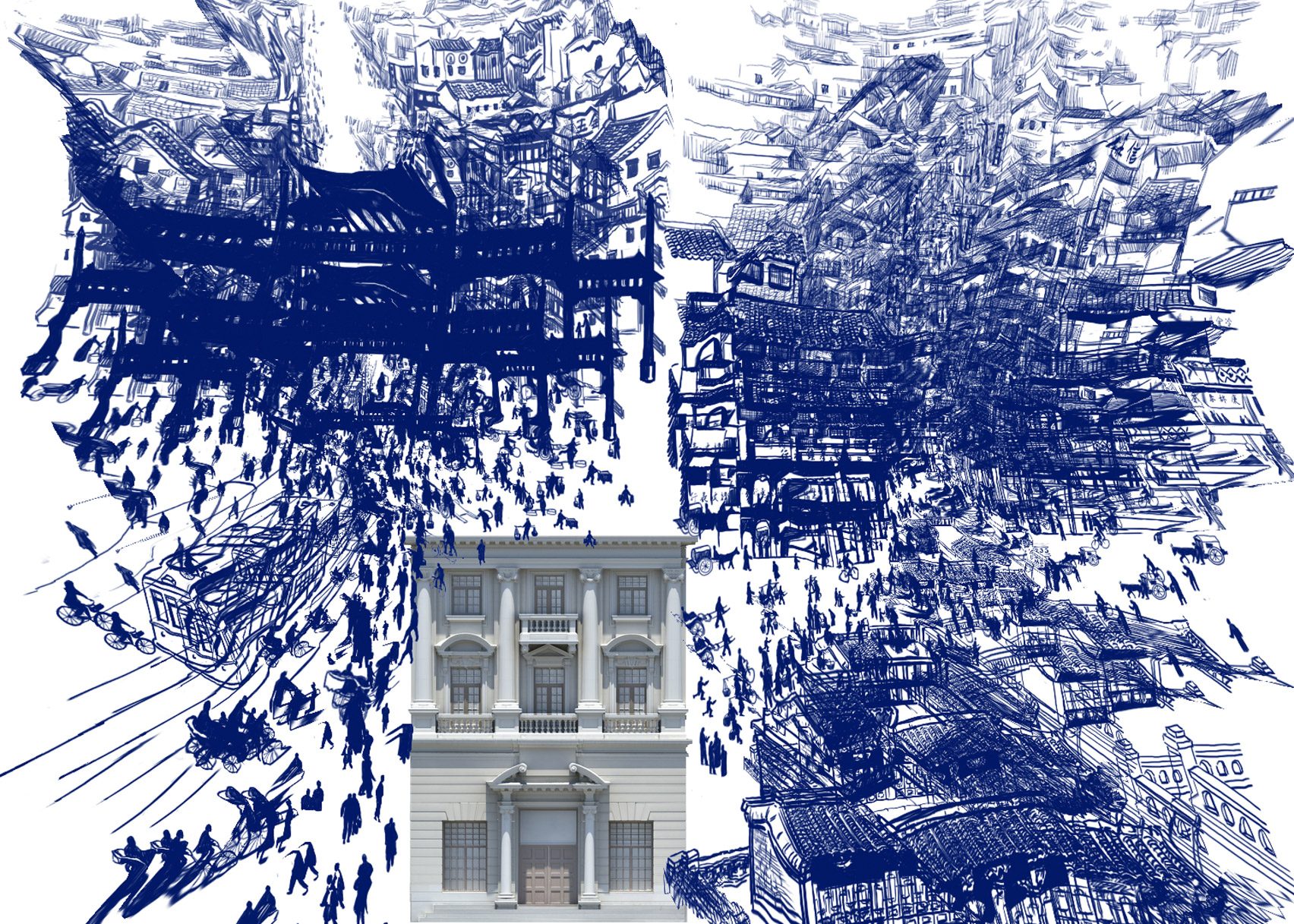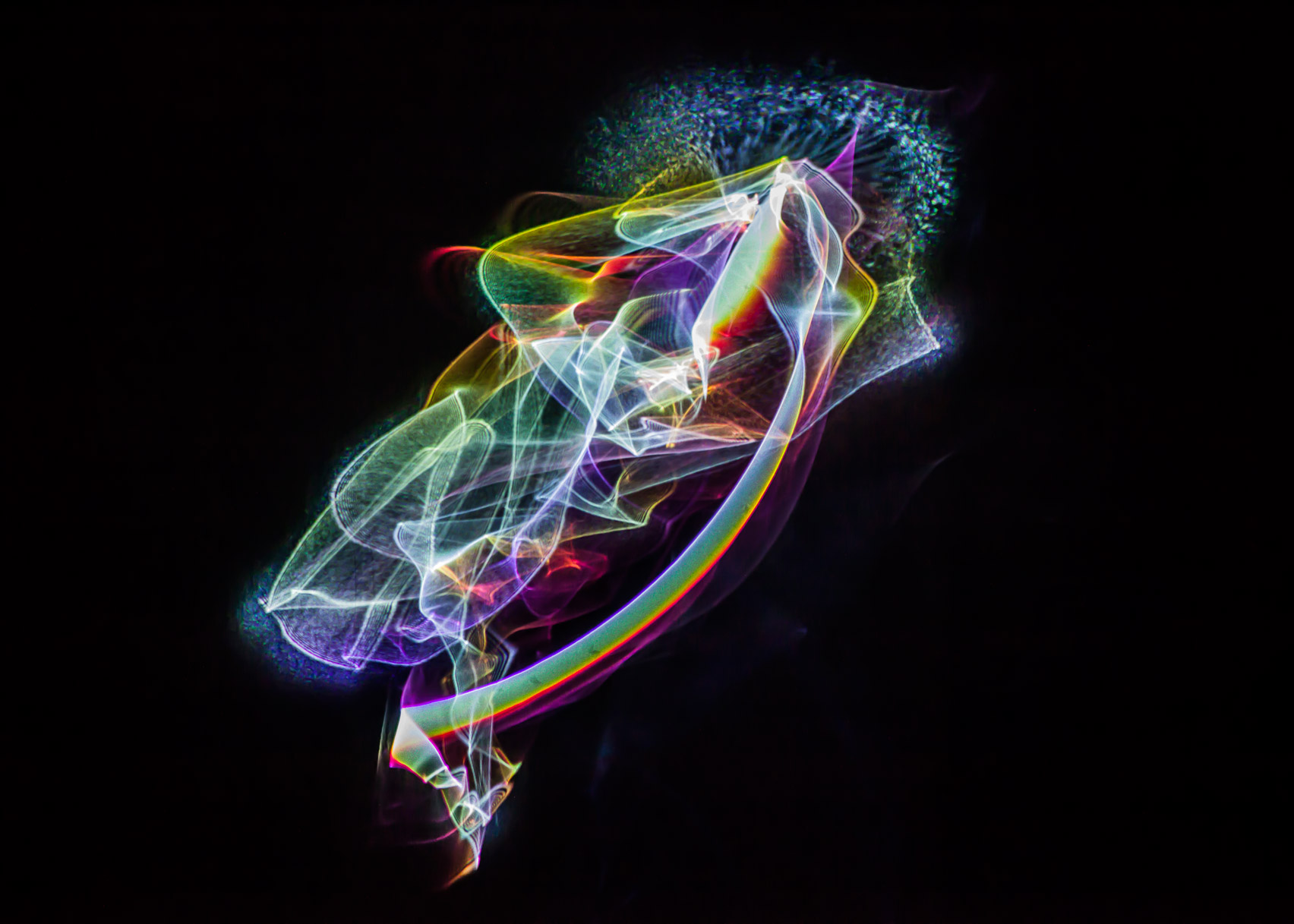Dezeen promotion: this year's Beijing Design Week features installations, design exhibitions and pop-ups focused on the redevelopment of China's urban environment.
The annual Beijing Design Week takes place across iconic areas, districts and commercial venues in the Chinese capital until 7 October 2016.
It includes five exhibition areas, lectures by designers and industry professionals, and a series of design markets.
The Design Hop programme returns to the creative quarters of 751 D-Park and the Dashilar historic district.
The Dashilar Pilots project showcases design solutions for the hutong built environment, focusing on the rediscovery of the artisanal practices and visions for its communal spaces.
There is also eight thematic pavilions at the Beijing Fun zone, which are open to the public for the first time.
The industrial 751 D Park hosts Seoul – the guest city for this year's event. For the first time in Beijing, Dutch designer Daan Roosegarde presents his Smog Free Tower, which aims to rid cities of pollution.
The Baitasi Remade project returns to the historic zone of Baitasi, aiming to create facilities that can be implemented following Beijing Design Week.
A series of courtyard renovations by architects Zhang Ke, Xu Tiantian, and Dong Gong will be unveiled, while new research and educational initiative The Global School will be launched.
New to this year's event is the Taikooli Light Festival and the Beijing Media Art Biennale.
Located in the Chaoyang District, the biennale was co-organised with the Central Academy of Fine Arts and is based around the theme of Ethics of Technology.
Also taking place as part of the Baitasi Remade programme is the BTS Print Club – an experimental unit focused on contemporary communications, including print, digital and augmentation.
Juergen Bay, Kengo Kuma, Kenya Hara and Luca Nichetto will also display new works in a series of independent design exhibitions.
Beijing Design Week takes place from 23 September to 7 October 2016. Visit the event website for more information and to register for tickets.
Read on for more information from the organisers:
Over the past five years the end of September has come to represent a critical moment of encounter for design professionals and publics to experience and take part in a multifaceted urban storytelling that takes over the Chinese capital with a variegated set of interventions around dozens of its iconic areas, districts, cultural and commercial venues.
In 2016 this unique outlook returns across established and new fora of practical and discursive nature, playing host to brand new programme frameworks and continuing to foster intellectual engagement and public participation to long-term projects of reflection around the Chinese urban condition.
Design Hop
Historical partner areas of Dashilar and 751 D Park. Dashilar, the hutong district adjacent to Tiananmen Square, will feature once again its flagship Dashilar Pilots programme of responsive design solutions for its complex built environment and unique social ecosystem focusing on the cultural rediscovery of artisanal practices historically found therein (Laozihao Revival) and visions for its communal spaces (Hutong Vision).
Aside of exhibitions, pop-ups and installations occupying its alleys and courtyards, Dashilar will see the unveiling of a recently reclaimed zone dubbed Beijing Fang, where eight thematic pavilions and its Open Blocks will open to the public for the first time.
The industrial park, 751 D Park will be this year host of the 2016 Guest City Program Seoul with an expansive series of exhibitions and interventions organised by the South Korean city of Seoul, while designer Daan Roosegarde will unveil here its first Smog Tower.
New projects launching this year include also the first edition of the Beijing Media Art Biennale, co-organised by Cafa (Central Academy of Fine Arts), the China Millennium Monument in collaboration with the B3 Moving Image Biennale (Berlin) under the theme Ethics of Technology.
The Taikooli Light Festival, a series of experimental and interactive installations to be found around the Sanlitun area based open-air mall, and a Chaoyang District-wide set of exhibitions and events.
Baitasi Remade
Although one of the latest entries to Beijing Design week launched just one year ago, the Baitasi Remade project in the eponymous hutong area, was the true highlight of the 2015 edition and returns this year to announce an unprecedented venture that will see year-long actions unfold as part of a soft strategy of urban and communal renewal taking design as a driver of its cultural and urban revival.
Under the rubric of Urban Learning & The Future of Sharing, the programme features a core set of knowledge-making hubs, participatory projects involving residents as well as local and international professionals, in the start-up of strategic actions and facilities to be implemented post Beijing Design Week.
The main features of this edition include the launch of The Global School – an unprecedented international research and educational institute dedicated to design and the city tasked to network international organisations, institutions, professionals and visionaries in various design fields to become part of a new design community taking Home & Shop in this unique neighbourhood.
The Global School will launch operations in 2017 as central to the next three-year development plans of Baitasi Remade as the first independent institute in China specifically dedicated to disciplinary interactions among diverse modes of thinking and making in design.
Its companion the BTS Print Club is a multifaceted unit for creative production and experimental investigations around the culture of contemporary communication and its expanding fields, from print to digital to augmented.
Chinese media partners and companies in relevant industries, local and international studios and designers will take part in a one-week series of presentations, making sessions and intellectual de- bates.
Part of this year's Baitasi Remade programme is also the unveiling of completed courtyards renovations by architects Zhang Ke, Xu Tiantian, Dong Gong and the final review-cum-forum of the International Design Competition launched earlier this year in collaboration with World Architecture Magazine, for the remaking of twelve courtyards in the area.
International speakers and schools will be joining ECAL, IAAC, StudioX/ Columbia University, others, while ad-hoc public programmes and newly created projects will be rethinking how design can enter productive dialogue with the social and infrastructural givens of this historical urban enclave.
China House Vision
Continuing from earlier in 2016 is the international program Across Chinese Cities that is currently presenting in Venice the exhibition China House Vision, already reviewed among the best offerings of the current Venice Biennale of Architecture.
Numerous the appointments in the China House Vision programme for the fall, including a dedicated China Day at the Tokyo edition of House Vision, in August 2016. More than 60 guests among Chinese architects, entrepreneurs, media and VIP guests visiting the Japanese capital for a unique moment of sharing and discussion around the issue of future living and habitation.
In September the official launch of the China House Vision Book published by Sanlian Publishing will see events at the presence of founder Kenya Hara, collaborating companies and architecture practices co-organised with the Chinese edition of the Financial Times, among others.
Across Chinese Cities embarks on new projects in October and November as part of the Taipei Design Capital program and design festival Operae in Torino.
Satellite programmes
Various special events are hosted by cultural institutions in the city, among them a unique series of talks and debates in Ullens Centre for Contemporary Art, running in conjunction with the exhibition Accomodating Reforms: International Hotels and Architecture in China, 1978‐1990.
An independent design exhibition featuring brand new works by, among others, Juergen Bay, Kengo Kuma, Kenya Hara and Luca Nichetto.

